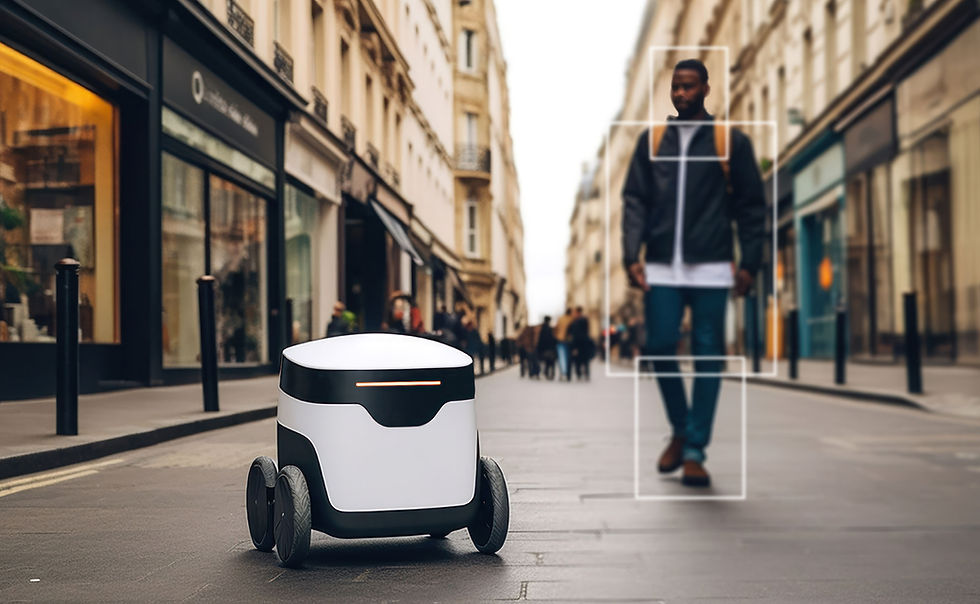Will AI Replace My Job?
- Matthew Coppola

- Jun 1, 2025
- 3 min read
What Australians Need to Know About the Future of Work
With artificial intelligence making headlines across the globe, it’s no surprise that many Australian workers are starting to wonder: Will AI replace my job?

From chatbots and self-checkouts to generative tools that can write emails or draft legal documents, AI is rapidly changing the way we live and work. And while some of the hype feels straight out of a sci-fi film, the concern is real — and worth unpacking.
Here’s what you need to know about AI, jobs, and your future in the workforce.
AI Is Changing Jobs — But It’s Not Always Replacing Them
Let’s get one thing straight: AI is changing how many jobs are done, but that doesn’t always mean people are being made redundant.
In most industries, what we’re seeing is a shift — not a wipeout. AI is being used to automate repetitive or low-level tasks (like data entry or appointment scheduling), freeing humans up to focus on more complex, creative, or interpersonal work.
For example:
In healthcare, AI helps scan medical images, but doctors still make final diagnoses and care decisions.
In finance, algorithms can flag fraudulent transactions, but financial advisors are still essential.
In marketing, AI can draft social posts, but strategy, branding, and human insight remain critical.
In short, the human touch still matters. In many cases, AI is a tool — not a threat.
What Types of Jobs Are Most at Risk?
Jobs that involve routine, predictable tasks are more vulnerable to automation. These often include:
Data entry clerks
Telemarketers
Retail checkout roles
Basic administrative assistants
However, even in these areas, AI won’t always eliminate roles — but it might reduce the number of people needed for the same work, or shift the skillset required.
On the flip side, jobs that involve creativity, critical thinking, emotional intelligence, or physical dexterity are harder for AI to replicate. These include:
Trades (electricians, carpenters, plumbers)
Mental health professionals
Teachers and educators
Designers and content strategists
Project managers
HR and leadership roles
So, What Should I Do?
Rather than fearing AI, the best move is to future-proof your career. That means:
1. Upskill and Reskill
Focus on skills that AI can’t easily replicate — creativity, strategic thinking, leadership, negotiation, emotional intelligence, and problem-solving.
Also, don’t shy away from digital tools. Understanding how to use AI with your job can give you an edge.
2. Embrace Lifelong Learning
The days of learning one trade or profession and sticking with it forever are fading fast. Embrace continuous learning — whether that’s online courses, formal study, micro-credentials, or workplace training.
3. Stay Curious and Adaptable
The ability to pivot and adapt is becoming a top trait for employers. Keep an eye on changes in your industry, stay open to new tools and technologies, and don’t be afraid to explore new career paths.
4. Focus on What Makes You Human
Communication, empathy, leadership, ethics — these are qualities AI doesn’t possess. Strengthening these "human" skills can make you more valuable, not less.
The Australian Context
In Australia, we’re seeing AI adoption across industries — but the pace is slower and more measured compared to some global markets. Most employers are looking to enhance productivity, not necessarily cut jobs. Government and industry bodies are also focused on responsible AI use, including training programs and ethical guidelines.
In fact, roles in AI-related fields are booming, with strong demand for:
Data analysts
Cybersecurity experts
Machine learning engineers
AI ethics specialists
Business analysts who can translate tech into real-world decisions
Final Thoughts: Should You Be Worried?
If you’re asking “Will AI replace my job?”, the honest answer is: maybe — or maybe just parts of it.
But more likely, AI will reshape your role rather than remove it entirely. Your best defence is to stay ahead of the curve, build a mix of technical and human-centred skills, and view AI as a tool to help you work smarter, not a threat to your livelihood.
As with any major shift, the future of work belongs to those who are ready to learn, evolve, and stay open to change.
Need help repositioning your career for the future? A professionally written resume — one that shows you can adapt and stay relevant — could be the key to standing out in an evolving job market. Contact us today to find out how we can help.



